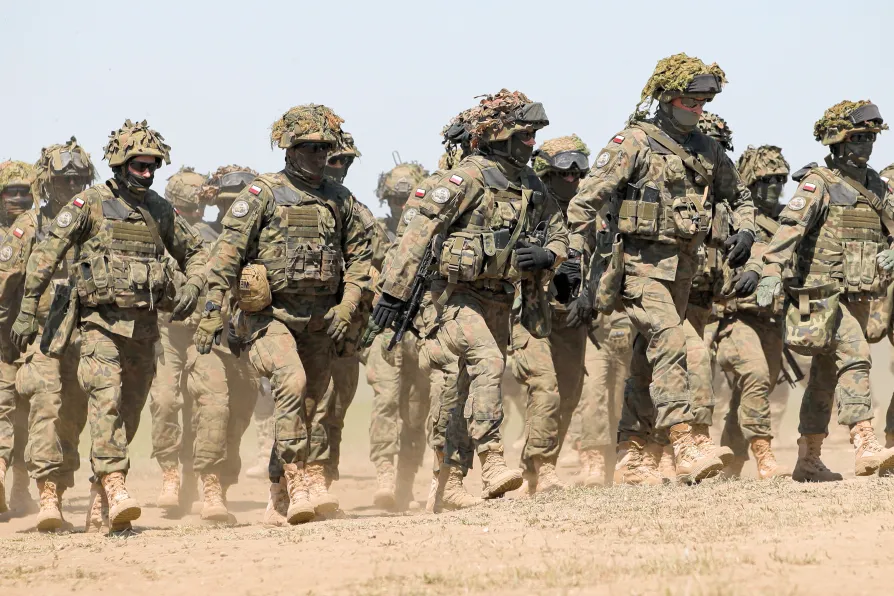Does widespread and uncontrolled use of AI change our relationship with scientific meaning? Or with each other? ask ROX MIDDLETON, LIAM SHAW and MIRIAM GAUNTLETT

 Polish troops march in Romania during last year's Defender Europe 21, a US Army-led, massive, multinational, joint sabre-rattling exercise designed to build readiness for war and interoperability between NATO and partner militaries
Polish troops march in Romania during last year's Defender Europe 21, a US Army-led, massive, multinational, joint sabre-rattling exercise designed to build readiness for war and interoperability between NATO and partner militaries
IN RELATION to the crisis enacted out on the territory of Ukraine there are several ideas that form the basis of the position adopted by what we might call the “internationalist left.”
“Internationalist” in this context defines the left that elevates the interests of the working class as a whole over any spurious “national interest” shared with our rulers.
The foundation is opposition to the continued existence and global or regional dominance of military blocs. Where once the innocent deemed this a possibility — grounded in the dissolution of the Warsaw Pact which had united the socialist countries of Europe and thus ceased to exist when socialism was dismantled — it has now vanished along with illusions about an end to the history of class struggle.

Washington plays innocent bystander while pouring weapons and intelligence into Ukraine, just as it enables the Gaza genocide — but every US escalation leaves Ukraine weaker than the neutrality deal rejected in 2022, argue MEDEA BENJAMIN and NICOLAS JS DAVIES

In the first half of a two-part article, PETER MERTENS looks at how Nato’s €800 billion ‘Readiness 2030’ plan serves Washington’s pivot to the Pacific, forcing Europeans to dismantle social security and slash pensions to fund it












